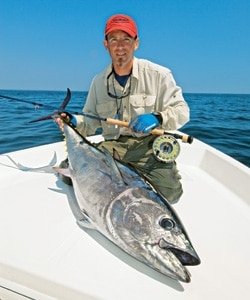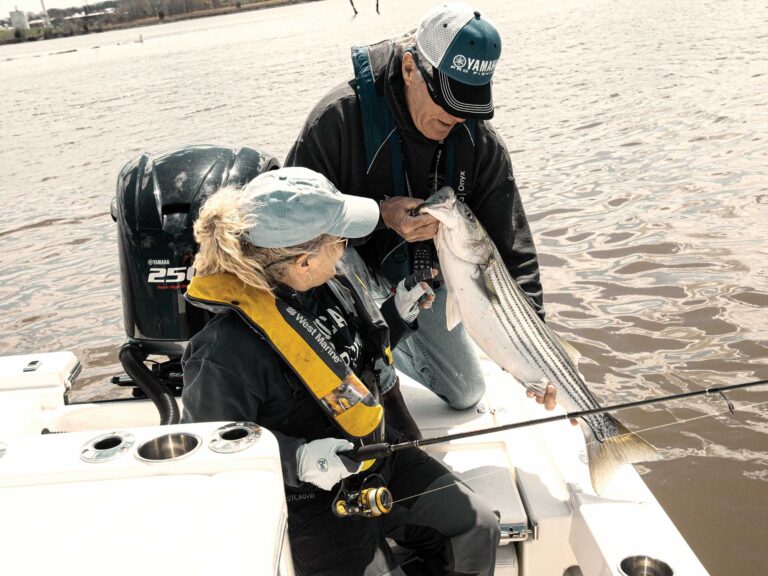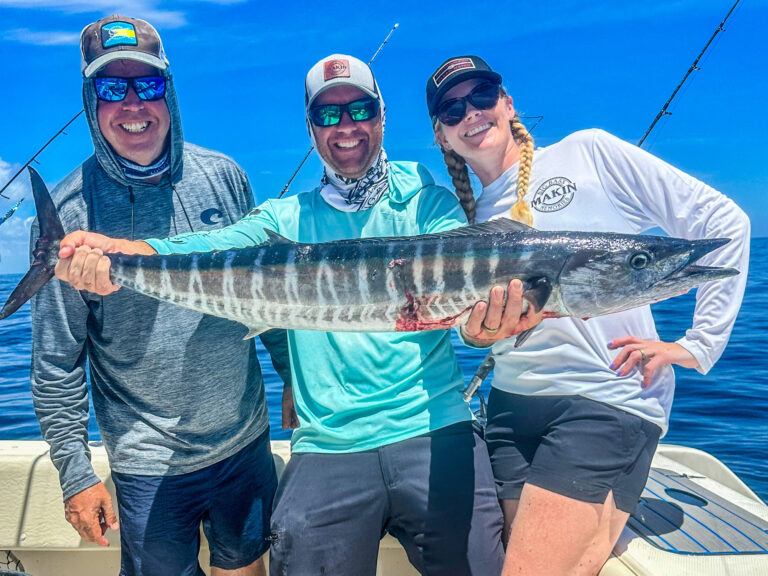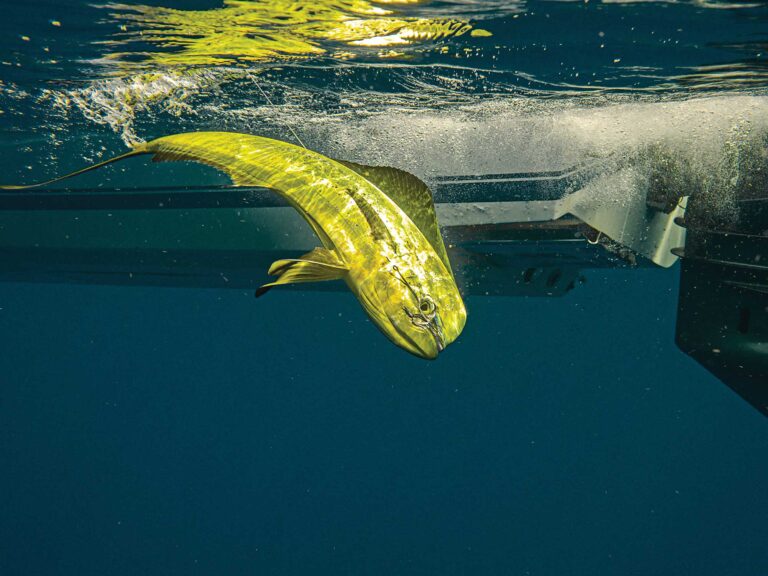
Anglers from New Hampshire to North Carolina had an unusually successful season this year for bluefin tuna. Yet as regular readers of this column know, the science is pretty clear that western Atlantic bluefin remain badly depleted, despite anecdotal reports of localized abundance and even stratified year classes.
I know from personal experience that there did seem to be quite a few fish around, as I did my fair share of catching, including a few fish on fly. However, in the case of bluefin, as well as so many other depleted species, it’s not where they are but where they aren’t, and few would argue that bluefin aren’t still a shadow of what they were in the ’60s and ’70s. Last year’s oil spill in the western Atlantic stock’s spawning grounds will likely compound the bluefin’s problems. Thus the question many of us are faced with, not concerning just bluefin but any depleted species (e.g., weakfish, white marlin, mako shark, winter flounder, red snapper and, arguably, striped bass), is: Can we justifiably target them within the confines of the existing regulations, or should we be leaving them alone?
**To Fish or Not to Fish
**It’s a question I’ve had to grapple with on a personal as well as public level, as I understand I’m getting some criticism given what I’ve been writing here and elsewhere about the need for greatly reduced fishing mortality for bluefin and other depleted species for the last decade. With bluefin and weakfish, I’ve gone so far as to argue for a temporary moratorium. For the record, I still believe that such a moratorium is justified in both cases. It would give these species the best chance of recovering, and I would gladly not fish for them for five years or more, as such a sacrifice would pay dividends once these stocks were allowed to rebuild to historical levels.
However, I have never suggested that folks not fish for those species as long as they were doing so within the law. Still, I’ve always believed in the value of personal conservation choices, and I respect those anglers who choose not to target species such as bluefin or weakfish because of their depleted state. But the truth is, such anglers are a great minority. The majority believe that if it’s legal to take a fish, then there’s no harm in doings so, since the regulations must be based on the best and most recent science. Few consider the reality that managers are subject to political pressure from industry to keep fisheries open. As a result, while I hesitate to say it, personal decisions to refrain from targeting depleted species may be well-meaning, but they just don’t add up to much.
The same can be said about market-based sustainable-seafood programs. Such programs educate consumers on which seafood species are depleted and which ones are healthy so seafood eaters can make responsible choices. Some diners, including me, follow the recommendations religiously, but the great majority of the fish-eating public feels that if a fish is on the menu, it must be OK to eat. Once again, individual action may make the individual feel good, but if overall public policy does not support a needed change, the impact of such individual acts is quite small. If the populace are not forced to change their behavior, the unfortunate truth is such personal sacrifices don’t accomplish much.
On the other hand, as Coastal Conservation Association New York’s vice chairman Charles Witek III points out, public policy is in the end little more than an amalgamation of personal choices expressed in legislation or rule-making by popular demand. Witek, an experienced offshore fisherman, hasn’t targeted bluefin since 2005, going so far as to avoid those areas where he might inadvertently encounter one. He argues that peer pressure can and does work and that by setting an example and not targeting depleted species, one responsible angler can inspire others, which may ultimately lead to a broader change in angler behavior.
**Absolute Value
**Certainly there’s some truth to this. When Lee Wulff said that “game fish are too valuable to be caught only once,” those words had resonance and inspired a legion of cold-water anglers to release fish despite generous bag limits. No-kill areas came after the paradigm shift inspired by individuals, and not before. Similarly, when BASS tournaments began to emphasize catch-and-release, they created a paradigm shift among largemouth anglers, who suddenly started releasing their “hawgs” instead of hanging them on a chain for all to see at the local gas station. Decades ago it was perfectly acceptable to hang tarpon, sailfish, sharks and marlin for display and then dump them out at sea. Today, while it’s still legal to do this, you don’t see it happening because it’s widely frowned upon in the angling community. Without a doubt, such conservation stand-ards were created by peer pressure and community resolve.
Yet not targeting bluefin, weakfish or even striped bass is quite a bit different from just releasing these fish. We’re talking about complete abstention here. And it goes without saying that there are some big drawbacks to that option.
The simple act of fishing for striped bass and weakfish, and in recent years bluefin, has become central to who and what I am. It’s what inspired my concern for the recovery and well-being of these fish in the first place. Fishing is what brought influential folks such as Carl Safina into the fisheries conservation world. “If I never went fishing, I can’t imagine what I’d be doing now,” he told me during a recent phone conversation. Certainly those who embrace a natural resource through recreation develop a passion for protecting it. We can’t forget that the entire fisheries conservation movement was started by and is still largely driven by anglers. Environmental groups are relatively new on the scene, and until recently they seemed to advocate only for “charismatic megafauna” while leaving species like winter flounder, which are in deep trouble, to, well, flounder.
**Doing What’s Right
**If we were all to give up targeting a species, would we be less likely to fight to protect them? Perhaps not, but un-doubtedly, when folks give something up, it becomes less and less an important part of their lives. While I won’t argue here that bluefin aren’t a good candidate for an Endangered Species Act listing, as managers have consistently failed them, I’d hate to see such a listing happen, as I believe it would exclude an entire generation of anglers and future advocates from an offshore fishery.
Having said all of this, I do believe that personal conservation choices can be good and may over time result in some positive change, but this is a long and indirect path. In my opinion, fisheries problems are primarily solved by efforts to change public policy, and only to a smaller extent by personal example. Unfortunately, there are too many people out there who believe they are doing enough by practicing catch-and-release but shun any effort to change public policy for the benefit of the species. They loathe to attend a public hearing or even write a letter to regulators. Frankly, those anglers who do keep fish but fight bare-knuckled on the public policy front to keep overall mortality down are arguably the real agents for fisheries conservation.
**Brass Tacks
**From a personal perspective, it’s difficult for me to sacrifice fishing for bluefin tuna or, on the other end of the spectrum, striped bass. As my conservation choice doesn’t appear to make much of a difference in the grand scheme of things, perhaps I’m contributing to the tragedy of the commons that has plagued fisheries here and abroad for decades, but I don’t believe so. Striped bass are not yet in great trouble, and if we manage them with a little more precaution, they will thrive. Western Atlantic bluefin, while in much worse shape, may be on the rise – the latest stock assessment is encouraging. Regardless, I feel that my efforts as well as others’ are much better focused on the advocacy front. I believe that the most important action to take is to push for changes in public policy that will actually help the stock recover.
What it really all comes down to is a matter of conscience. “Responsible anglers should have an innate sense of the meaning of the word enough,” says Safina, “and that has to come from within you and not from the table of size and bag limits.” I feel OK with targeting the species I do. While I try to minimize the impact I have by employing the appropriate gear and using proper release techniques, I also realize that I do indeed have an impact and would even if I were to release every fish I catch. Yet fishing for striped bass and, recently, bluefin has become integral to who I am and what I do. Without them I simply wouldn’t be as intimately involved.









